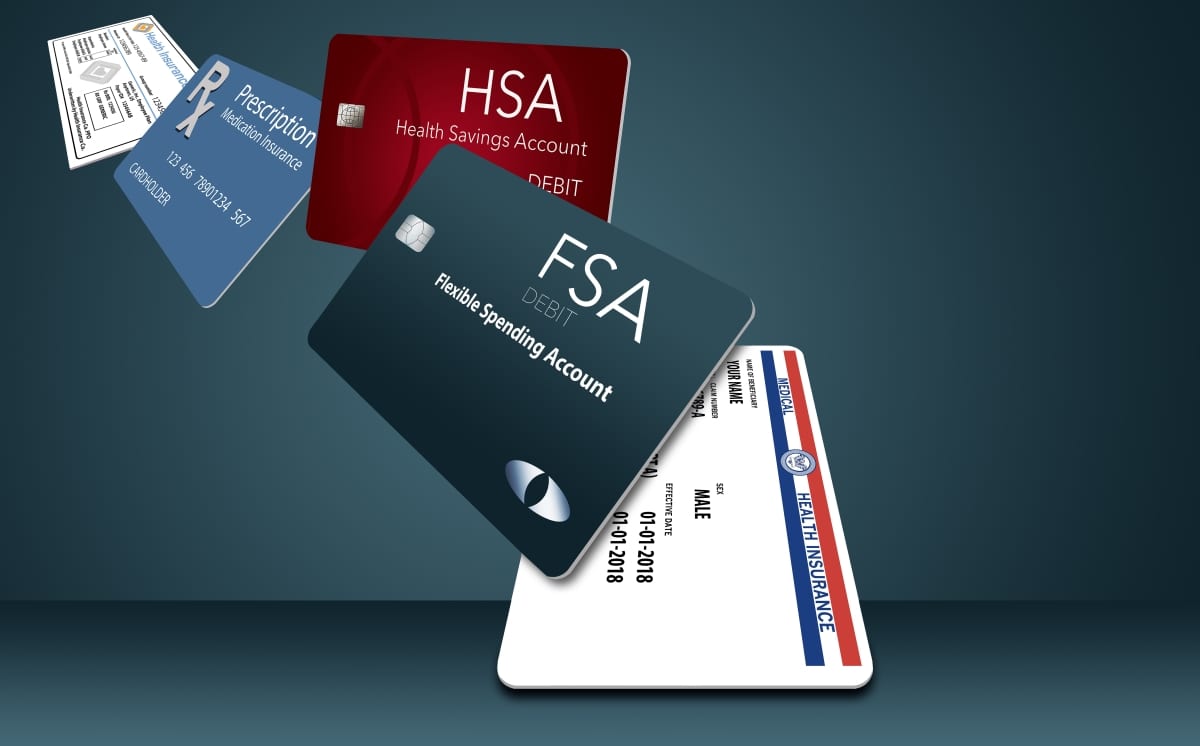Health Savings Account Vs FSA

Health Savings Account Vs FSA: Which One is Best for You?
Which kind of healthcare savings plan should you go with: a Health Savings Account (HSA) or a Flexible Spending Account (FSA)? Both have tax benefits but are different in significant ways. You might even choose to forgo either one.
Health Savings Accounts
HSAs allow you to build up funds to pay for medical expenses to use later and you can roll the balance over from one year to the next. To qualify for an HSA you must have a qualified insurance plan with high deductibles. A high deductible health plan (HDHP) is considered a qualified plan.
What is an HDHP?
Like the name says, these health plans have high deductibles, so your out-of-pocket expenses are high, but your premiums are low. You pay more out-of-pocket before your insurance starts paying.
The minimum deductible costs (how much you pay for health care before the plan starts to pay) and the maximum out-of-pocket expenses (the highest amount you have to pay) are determined annually by the federal government.
For 2020, those amounts are:
| Minimum Deductible | Maximum Out-of-Pocket | |
| Individual Plan | $1,400 | $6,900 |
| Family Plan | $2,800 | $13,800 |
These amounts for any one HDHP can be higher than the minimum deductible, but not lower. Out-of-pocket costs cannot be higher than the maximum shown.
An HDHP can save you money on your health plan costs with lower premiums. The HSA that a qualified HDHP allows access to save you tax money up front and gives you the ability to create long-term savings.
In order to qualify for an HSA:
- The HDHP is your only health insurance plan.
- You aren’t eligible for Medicare.
- You aren’t claimed as a dependent on another person’s tax returns.
Check with your insurance provider to make sure a particular HDHP qualifies you for an HSA.
HSAs and Taxes
- Contributions to your HSA are tax-deductible.
- You can also have take taken your contributions taken out of your paycheck pretax.
- When you take money out of your HSA for health care expenses, you don’t have to pay taxes on it.
- If you use the money you taken out of your HSA for expenses other than for health care items and services, you have to pay a penalty tax.
Flexible Spending Accounts
You can only get an FSA through your employer.
- Typically, you cannot have both an FSA and an HSA at the same time. An exception is made for a “limited purpose” FSA, which can only be used for vision care and dental costs.
- FSAs are not good if you want to use them for long-term savings. If your FSA funds aren’t used by the end of the year, you lose the money. With an FSA you can’t roll funds over to the next year.
- However, your employer can choose to allow a rollover to a new FSA at year-end, but the IRS only allows up to $500 to be rolled over.
FSAs and Taxes
- Contributions are made pre-tax.
- Distributions are not taxed.
Which is Best for You? Health Savings Account Vs FSA
Here are some of the main differences between HSAs and FSAs:
| Health savings account (HSA) | Flexible spending account (FSA) | |
| Eligibility | Must have a high-deductible health plan (HDHP).
You do not get Medicare. No one else claim you as a dependent. |
Employer must offer this benefit.
You can’t get it on your own. |
| Contribution limit | Contribution limits are higher.
There’s an option to double contributions for families. |
There are lower contribution limits.
There is no option to double contributions. |
| Changing contribution amount | If you want to increase your contributions, you can do so at any time. | Contribution can only be adjusted during open enrollment.
Changes can also be made if there is a change in employment or family status. |
| Rollover | Unused balances roll over into the next year. | You lose any unused balance at the end of the year, unless your employer allows a rollover for as much as $500. |
| Employment status | Your HSA can go with you if you change employment.
You don’t need to be employed to contribute to an HSA, as long as you have an HDHP. |
Typically, you lose your FSA with a job change.
But you can continue an FSA if you’re eligible for FSA continuation through COBRA. |
| Taxes | Contributions are tax-deductible.
Contributions can also be taken out of your pay pretax. Growth and distributions are tax-free. |
Contributions are pretax.
Distributions are untaxed. |
HSAs vs. FSAs
Healthier, usually younger people with fewer medical conditions and prescriptions can be good candidate for HSAs.
People with high medical costs, on the other hand, might be better off with a different plan than an HSHP, because non-HSHP plans cost more in monthly premiums but cover more up front. The catch is you will be disqualified for an HSA if you have a regular health insurance plan.
FSAs allow you to use any health insurance plan your employer offers. This kind of account might better suit people with higher medical costs.
What Next?
Learn more about health insurance and HSAs on the EINSURANCE health insurance section. You can compare quotes easily to decide which are best for your circumstances.

 EINSURANCE
EINSURANCE EINSURANCE
EINSURANCE EINSURANCE
EINSURANCE